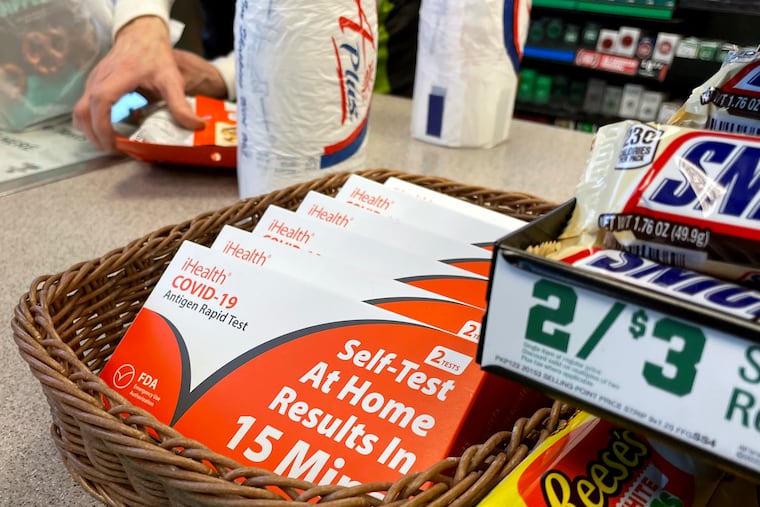‘Tripledemic’ means we have to think about more than just COVID this winter | Expert Opinion
You're feeling a little under the weather, but your COVID test was negative. So it's OK to head to the birthday party you've been looking forward to, right? Wrong, says this Philly doctor.

A physician friend told me a cautionary tale about his own family. They traveled up north to an extended family event where, as a precaution, everyone agreed to take a home COVID antigen test on the day of the gathering.
Thankfully, all were negative.
The day after they returned home, my friend, his wife, and both adult children became sick with influenza and missed a full week of work.
Turns out that one guest had a low-grade fever and cough, tested negative for COVID, and took ibuprofen and dextromethorphan (an over-the-counter cough suppressant) an hour or so before the event. About half of the attendees left with an unwanted surprise party favor.
The lesson here is that we need to adjust our thinking about respiratory contagion precautions this season. COVID is not the only virus that can wipe you out for a week, and a negative COVID test isn’t a green light to socialize if you’re experiencing flu-like symptoms.
We’re in the midst of what has been dubbed a “tripledemic” — COVID-19, respiratory syncytial virus (RSV), and influenza — all of which are highly contagious and can cause miserable and even dangerous symptoms, along with loss of productivity at work and in other responsibilities.
It can be difficult to distinguish between them based on symptoms, and only COVID has a readily available and reliable home test. Flu and RSV can be diagnosed with a nasal swab, but require a trip to your primary care provider or urgent care clinic.
Although there is no perfect way to judge whether someone is contagious, here are a few guidelines you can follow to protect yourself and others:
Stay home if you have a fever — even if you are able to suppress it with acetaminophen or another fever reducer. Fever is a strong sign that you may be very contagious, and it is best to avoid work or public gatherings until you’ve been fever-free for at least a couple days.
A frequent cough, runny nose, and sneezing can also easily spread viral respiratory infections and are good reasons not to socialize. Sometimes cough and mild congestion can linger for days or weeks after you are no longer contagious. Ask your primary care clinician for advice on when to return to work, and when you do, wear a mask around others until your symptoms are completely resolved.
Get the flu and COVID vaccines. Vaccination against influenza and COVID is highly effective protection against serious illness, hospitalization, and death. It’s not too late to get yours, and I highly recommend both.
Remember that although vaccination protects against the worst outcomes, vaccinated people can still get sick — sometimes even enough to feel miserable and miss work. Older adults and those with chronic health conditions are most at risk.
Wear a mask in crowds and busy stores, or when in close contact with others whose health status is in question.
Even if you feel as if you’re over the pandemic, wearing a mask is simply a smart precaution against all of this winter’s trio of menacing respiratory infections.
Although pandemic fears have waned for many, we still owe it to ourselves and others to stay safe and act responsibly. It’s not just about COVID anymore.
Jeffrey Millstein is an internist and regional medical director for Penn Primary Care.